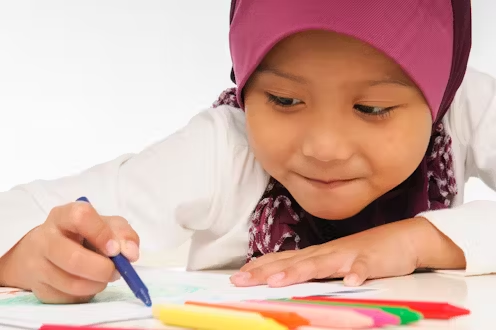Children are not enjoying reading or reading as much in their free time as they used to, according the National Literacy Trust’s (NLT) annual survey.
More than 76,000 children and young people, aged 5 to 18-years-old, from 405 schools across the UK completed the survey. Worryingly, those surveyed reported the lowest levels of enjoyment of reading and reading daily since 2005. Only 34.6% of respondents aged 8 to 18-years-old reported reading in their free time; with boys and secondary school aged young people reporting the highest levels of decline.
This is a concern as there are a lot of benefits of reading. Books are mirrors of ourselves, windows to other worlds and sliding doors to enable us to be part of those worlds. Reading can help with assessments and exams, but more importantly it informs our worldview. It can help children and young people relax, learn about new things, consider something from a different perspective and allow their imagination to run wild.
The report highlighted that slightly more children and young people enjoyed reading more at school. So how can parents help children fall in love with reading at home?
Parents are responsible for curating a child’s reading material to ensure that their experiences of reading are positive. While the vast quantity of children’s literature may make this seem like a daunting task, it should instead be celebrated – there is a book out there for every child.
In our ongoing research supporting children’s literacy development, we’ve been working with the assistant head of Millfield L.E.A.D Academy in Leicestershire, Aaron Jordon. Jordon has introduced a weekly reading session where children talk about what they have recently read. With him, we have used these insights to select a range of books that to capture childrens’ imaginations.
The books recommended here have been chosen by children by applying the following broad principles:
1. It is important that children can see themselves in the books that they read
A good starting point is that a book’s protagonist is a child but consider carefully what other aspects of your child’s identity are important to them.
A protagonist should embody these too.
Book selection: Amari and the Night Brothers by B.B. Alston. Arisa and Robert picked this book because “it combines adventure, mystery, magic and comedy – who doesn’t want this combination!? It is one of the best books we have read.”
2. Children need parents to model good choices, but they also need to be able to make choices themselves
An easy way you can begin to develop a child’s innate choosing strategies is by introducing them to series, or even authors with wide repertoires. This means when they have enjoyed a book, they can easily find another connected book that they are also likely to enjoy.
Book selection: The Highland Falcon Thief by M.G. Leonard and Sam Sedgman. Isham picked this book because: “it’s a great mystery story, which leaves you guessing until the end to find the identity of the thief. I loved this story. It kept me on edge and gripped through to the end and I was constantly trying to solve the puzzles.”
3. Broaden a book’s reach by choosing one that allows a child to engage with it beyond just reading the words
Does the book help them engage with a bigger topical issue? Can they visit the book’s setting? Considering how a child might interact with the text they read is important.
Book selection: Where the River Runs Gold by Sita Brahmachari. Eveline picked this book because: “this book makes you think about our planet and how we must treat it better.”
4. Enable the child to explore other areas of interest through reading
This could be non-fiction inspired by their most passionate hobbies, or a fiction novel set in a time period they are enjoying studying at school.
Book selection: When the Sky Falls by Phil Earle. Eben and Radley picked this, “as this book is for anyone interested in life during the second world war, animals and friendships, this is the best book for you. But be warned, it is an emotional read! We would definitely recommend this book to other children”.
5. Be inspired by your own reading memories, but not tied to them
C.S. Lewis, Roald Dahl and J.R.R. Tolkien may have dominated your childhood bookshelf, but many contemporary authors continue the legacy of great writers of the past. You may also find you enjoy reading and sharing something with your child that is also new to you.
Book selection: Impossible Creatures by Katherine Rundell. Ishan and Arjen picked this book because “this story is full of plot twists, mysteries and adventure”.


